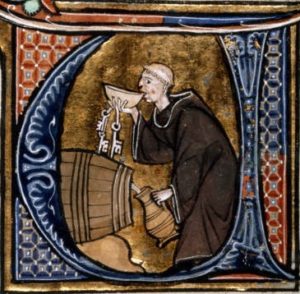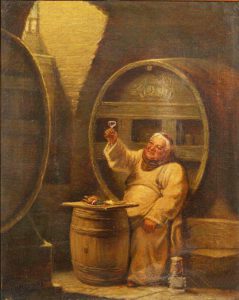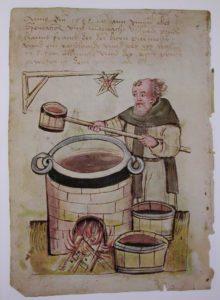
A researcher from Durham University’s Department of Theology and Religion has discovered that English monks exiled in France were very partial to a brandy-based cocktail. Dr James Kelly, Research Fellow in Early Modern British and Irish Catholicism, uncovered two drinks recipes used by the monks in the 17th century.
The recipes, which Dr Kelly discovered as part of his work for the Monks in Motion project, give instructions on making punch and a similar drink known as ‘shrub’. Both drinks were flavoured with orange or lemon peel, along with sugar, water and up to ten pints of brandy or rum!
After the drinks had been prepared, they were left to ‘steep’ for a few days and mixed occasionally.
Dr Kelly said, “The quantity of punch made, and the time taken to steep the drink, suggests that this was something to be enjoyed on special occasions by the whole monastic community – not a quick drink for cocktail hour!”


As well as highlighting the type of drinks enjoyed in the 17th century, Dr Kelly believes his research shows that although the monks were exiled, they were still informed about fashions back in England.
Dr Kelly said, “Both punch and shrub were hugely popular in England at this time.”
“The fact that members of an exiled monastic community were making these drinks shows that they were not cut off or isolated from the world around them. Rather they were part of the globalisation of tastes and trends.”
Alcohol was a common feature of life in monasteries at that time. One reason was that water supplies were often contaminated. Alcoholic drinks also supplied nutrients during religious fasts.
Research by @monksinmotion finds recipe for Eighteenth Century monks’ favourite brandy-based tipple. Find out more https://t.co/OhgvVzJhp4 pic.twitter.com/s4WcZzp5xF
— Durham University (@durham_uni) December 19, 2016
The recipes were the work of members of the Saint Lawrence Benedictine monastic community, Catholic English monks who were in exile in Dieulouard, France. They had gone into exile because Catholicism was outlawed in 17th century England.


The monks returned to England following the outbreak of the French Revolution and established Ampleforth Abbey, in North Yorkshire. It was at Ampleforth that Dr Kelly discovered the recipes.
Monks in Motion, which is based at Durham University and funded by the Arts and Humanities Research Council, is examining the political and intellectual activities of Benedictine monks during their continental exile. Dr James Kelly is the Principal Investigator of the Monks in Motion project.

























